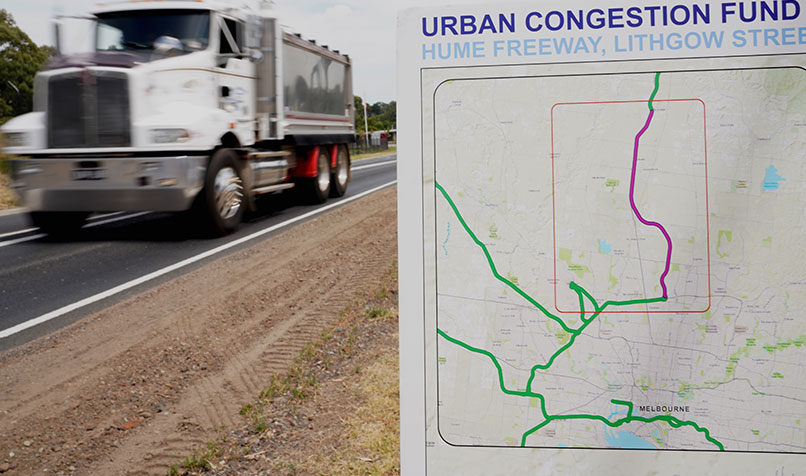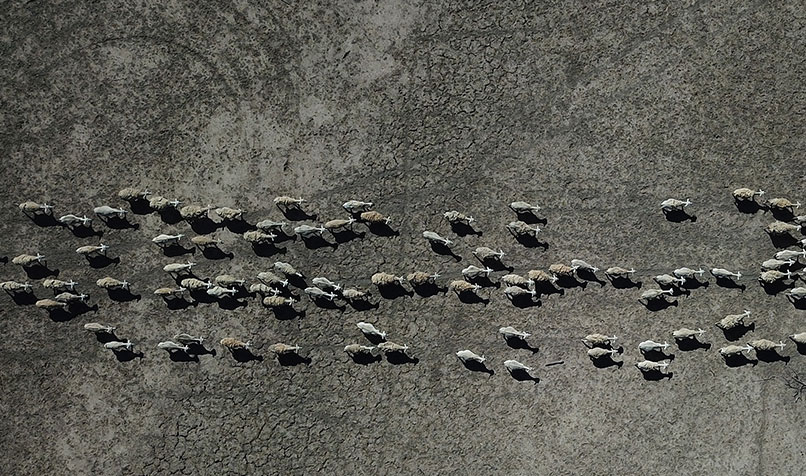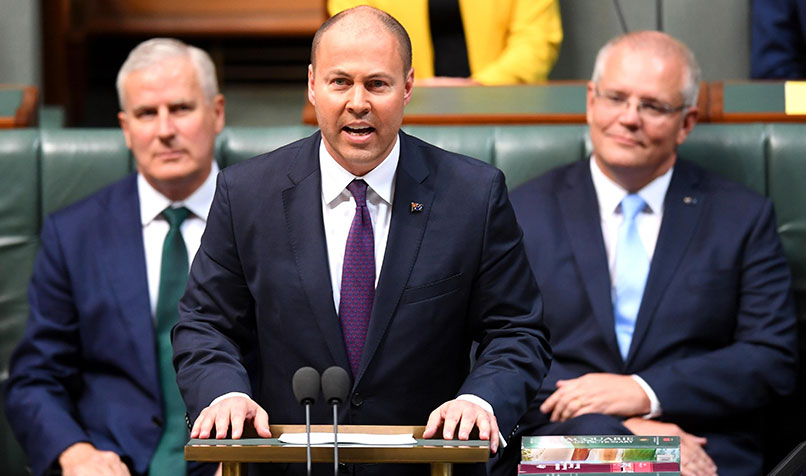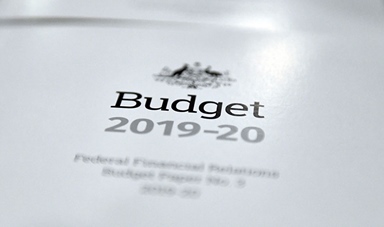Loading component...
At a glance
A stronger economy and a secure future were the promise of Federal Treasurer Josh Frydenberg in announcing a A$7.1 billion surplus, tax cuts and extra funding for infrastructure and services to regional Australia in the 2019/20 budget.
Frydenberg stressed several times that expenditure would be achieved without increasing taxes, while announcing lower taxes for 10 million people and three million small businesses.
The Treasurer delivered the first budget surplus in 12 years and announced investments in education that he said would invest in the jobs of tomorrow.
With a Federal election looming in May, pollsters are tipping that the government will be unseated by Bill Shorten’s Australian Labor Party, in which case many budget announcements will not be implemented.
Labor has said, however, that it will support one-off cash payments and tax cuts for low and middle-income earners but, if elected, will deliver its own major economic statement in the second half of the year.
CPA Australia's former head of external affairs Paul Drum FCPA said the budget made a strong election pitch but “their biggest test is whether they can get re-elected in the coming months to enable them to deliver on these budget commitments.”
The budget assumes real growth in gross domestic product (GDP) of 2.75 per cent in the 2019/20 and 2020/21, unemployment at 5 per cent over the same period and the consumer price index (inflation) at 2.25 per cent in 2019/20.
WINNERS
Wage and salary earners
The Treasurer announced A$158 billion in personal income tax cuts through more than doubling the low and middle-income tax offset from 2018/19.
This will benefit more than 10 million people earning up to A$126,000 a year.
From July 2024, Frydenberg says the government will cut the 32.5 per cent marginal tax rate to 30 per cent, applying to all taxpayers earning between A$45,000 and A$200,000.
He says the top 5 per cent of taxpayers will pay one third of all income tax collected.
Business
The instant asset write-off will be extended to June 2020 and increased from A$25,000 to A$30,000. The write-off allows small business with a turnover of less than A$10 million to claim an immediate deduction for a purchase below that amount but will be expanded to businesses with turnover of up to A$50 million, or another 22,000 businesses.
Businesses will also be able to claim the deduction every time they make a purchase under the cap.
The write-off remains an annual deduction. CPA Australia has called for the write-off to be made permanent rather than extended budget to budget, to give business owners greater certainty when planning.
The government will defer to July 2020 the start date of the proposed amendment to Division 7A of the Tax Act, to allow further consultation.
CPA Australia has argued the Treasury-proposed changes to how business owners can make loans from private companies will discourage investment.
Building and transport industries

The government announced increased investment in infrastructure spending, to improve rail links and address road black spots, with the Treasurer naming several projects in major state capital cities and also rural and regional Australia.
The budget includes increasing the Urban Congestion Fund to A$4 billion from A $1 billion, to cut travel times in Australia’s rapidly-growing cities.
A A$500 million Commuter Car Park Fund would improve access to public transport hubs.
He promised A$2.2 billion for roads, A$1 billion to improve freight routes and access to ports and A$100 million for regional airports.
Education

A A$525 million skills package would create 80,000 new apprenticeships in industries with skills shortages and double to A$8,000 the incentive payments to employers per apprenticeship placement.
There were also announcements to create new training hubs, give new apprentices a A$2000 incentive payment, and invest in science, technology and research.
Rural areas

The budget papers commit to major spending in regional and rural areas to expand water infrastructure, provide drought relief and upgrade regional airports.
Older Australians
Frydenberg announced A$725 million for aged care, with 10,000 new home care packages and capital works focused on regional Australia.
Single pensioners will get a A$75 one-off cash payment for their energy bills, while couple pensioners will get A$125. The ALP is expected to support the measure.
Health sector
Australians suffering from cancer, heart disease, epilepsy and who live in rural areas are likely to benefit from several major investments in assistance programs and medication. The budget also contains A$461 million for youth mental health and suicide prevention.
Superannuation industry and older Australians
People approaching retirement will be able to boost their superannuation balances, with those aged 65 and 66 years able to make voluntary contributions without satisfying the work test, from July 1 2020. Currently, people aged 65 and older must work a minimum 40 hours over a 30-day period.
Frydenberg said the measure will align the work test with the eligibility age for the Age Pension, due to rise to 67 years from July 1, 2023. About 55,000 people will benefit from the reform.
People aged 65 and 66 will also be able to access the “bring forward arrangements” to make three years’ worth of non-concessional contributions (capped at A$100,000) to their super in a single year. This currently stops at 65 years.
The age limit for spouse contributions will be increased from 69 years to 74 years.
CPA Australia’s Paul Drum said that a fairer and more flexible solution would be to introduce lifetime caps and “revisit” abolishing the work test.
LOSERS
Business
There were few measures for corporate Australia, although many of the largest companies would benefit from spending in infrastructure, either as providers or users of improved services.
Regulatory burden on business
Business will pay more fees to regulators, through the industry funding model for the Australian Securities and Investments Commission (ASIC) and higher levies to the Australian Prudential Regulation Authority (APRA).
As part of a response to the Royal Commission into Misconduct in the Banking, Superannuation and Financial Services Industry, there will be extra funding to ASIC of A$38.5 million in 2019/20 and A$118 million in 2020/21, possibly funded by extra fees to business.
APRA will get A$16.9 million and A$19 million over the same period.
The budget allocates the Australian Taxation Office an extra A$1 billion over four years to expand its Tax Avoidance Taskforce.

Frydenberg announced the Australian Financial Complaints Authority will receive additional funding to establish a historical redress scheme for financial complaints dating back to 1 January 2008.
CPA Australia welcomed additional funding for APRA, ASIC and the Federal Court given the findings of the royal commission.
“But unfortunately, the significant cost increases that the ASIC user pays funding model places on our members and others delivering services regulated by ASIC have not been addressed in this budget,” said Paul Drum.
“This government-imposed cost pressure will not only negatively impact smaller accounting practices and others providing financial services, but also consumers in the future.”
CPA Australia previously recommended the government not pursue its full cost recovery model for funding ASIC’s regulatory activities, and that it reinstate funding previously cut from the ASIC budget.
“The government can expect to hear more from us on this,” Drum added.
Savers
The government has not introduced measures that would encourage Australians to save outside the superannuation regime.
Sport Integrity
The Government will establish a new body, Sport Integrity Australia, to carry out anti-doping and integrity functions, and a National Sports Tribunal to hear and resolve rule violations. The Government has also signed up to the Council of Europe Convention on the Manipulation of Sports Competitions.

